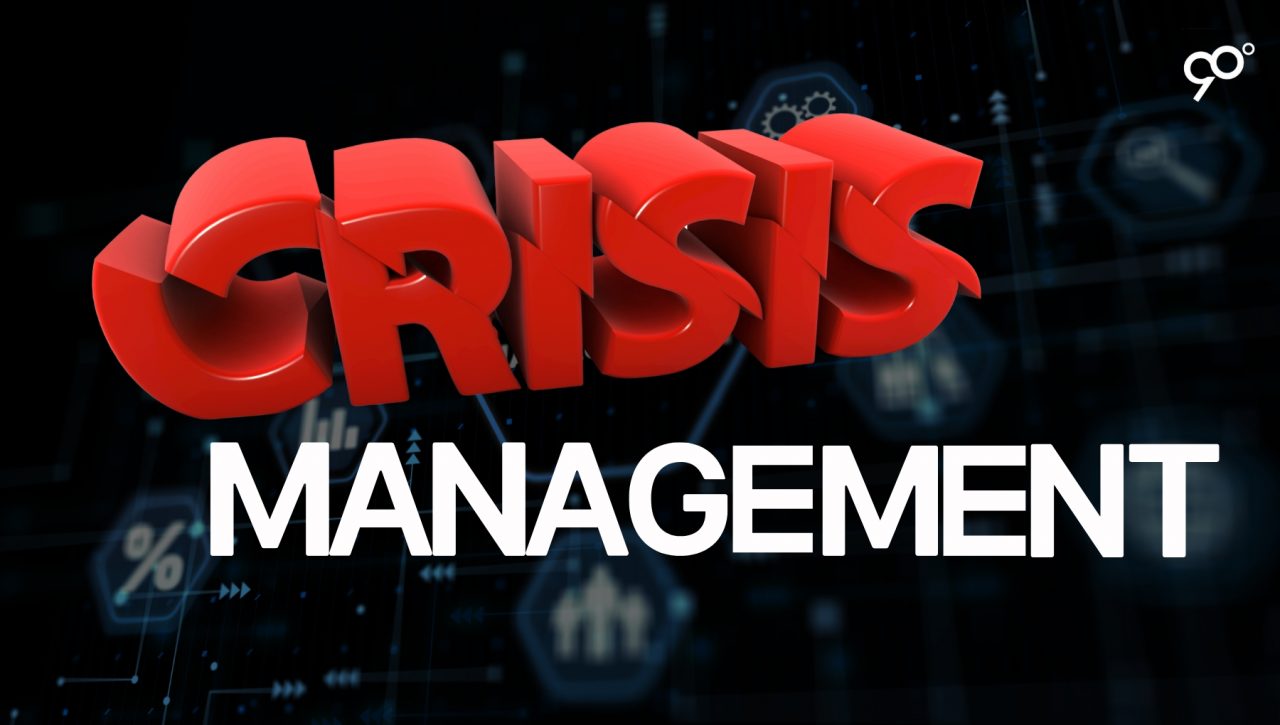
Every business, regardless of size, is vulnerable to unexpected crisis. Whether it’s a product recall, a data breach, or a public relations nightmare, these events can jeopardize a brand’s reputation, operations, and financial stability. The test is how to deal with the crisis efficiently and effectively.
But first, what is a crisis?
The first step in crisis control is recognizing one. Crisis is a fluid and dynamic state of affairs containing equal parts of danger and opportunity. It arrives when you least expect it. But not all issues are crises. Likewise, not all concerns are crises. So it’s important to recognize a crisis before someone else tells you. The key is understanding the anatomy of a crisis – what it is, how it looks and feels – being able to dissect the parts that form the crisis.
How do you manage a crisis?
Crisis management deals with the reality of the crisis, including investigation – knowing all the facts, deploying resources, marshaling the troops, preventing the situation from escalating and anticipating all other incidents that may unfold in the process.
Is crisis management the same as crisis communication?
No. Crisis communication deals with how different audiences perceive a challenging situation. It focuses on honestly informing the public, building trust, gaining credibility, and protecting your reputation through positive media coverage. In communication, the perception of a crisis redefines the crisis outcome.
What you can do?
An interplay of all these concepts becomes more meaningful when applied in real scenarios, but until then here are basic tips to remember when crisis occurs in your organization:
• Controlling the narrative
The one who controls the narrative controls the perception game. As has been said, the first 24 hours (or shorter!) is always the most critical moment. It’s like a race where you need to gather substantial details, if not all facts, needed to prepare for an initial statement. Controlling the narrative means getting out there first, responding to the people’s “right to know”. Your company’s initial statement will hold all other speculations and make sense of the situation, before the internet does it first.
• Operational Response / Crisis Management
This focuses on the immediate actions taken to mitigate the physical, financial, and logistical impacts of a crisis. It’s the “boots on the ground” phase where organizations put their crisis plan into action.
In the Philippine setting, the operational response may involve coordinating with government agencies, local communities, and other relevant organizations to ensure a swift and effective resolution to the crisis.
The operational response is closely intertwined with communication efforts. While PR teams focus on managing the narrative and public perception, the operational response teams work to resolve the underlying issues that caused the crisis in the first place.
• Make Connections
Developing relationships is at the core of all effective communication and this should be heightened during a crisis. That’s why it is important to have your stakeholders mapped out first so that during a crisis, your communications team should have crafted various communication plans that address the different stakeholders and their varying interests in the company.
And don’t underestimate the power of communicating to your internal audience! It is as important as external communications. Responding to your crisis is possible if the employees of the business are dedicated to solving the problem with you. But just as the public has the “right to know”, so does your internal audience. There must also be a strategic communication plan tailored to address the internal stakeholders of the company, including its employees, from the ground up. An effective employee engagement would forge a deep connection between the employees and the business, ensuring success for the company.
Have a crisis management team ready BEFORE (not after!) the crisis
The old adage, “an ounce of prevention is worth a pound of cure,” holds especially true in crisis management. Having a crisis management team assembled and prepared before a crisis erupts is not just smart, but is actually essential in any business environment.
Such pre-emptive preparation requires seeking the support of professionals. Communication and public relations firms that specialize in crisis management, such as Ninety Degrees PR Solutions, can help build and guide a crisis management and response team.
The road to recovery following a crisis can be a long and difficult one. It is one of the most important aspects of crisis response and can make the difference between moving forward positively or suffering long-term reputational damage.
Ninety Degrees PR Solutions’ team of communication professionals and media veterans are adept in developing strategic response and crisis communication plans for brands, businesses and personalities. Don’t wait for a crisis to force your hand! Invest in your brand’s resilience, reputation, and long-term success. Contact us today!
Follow Ninety Degrees PR Solutions on LinkedIn for more public relations and communication related articles.







